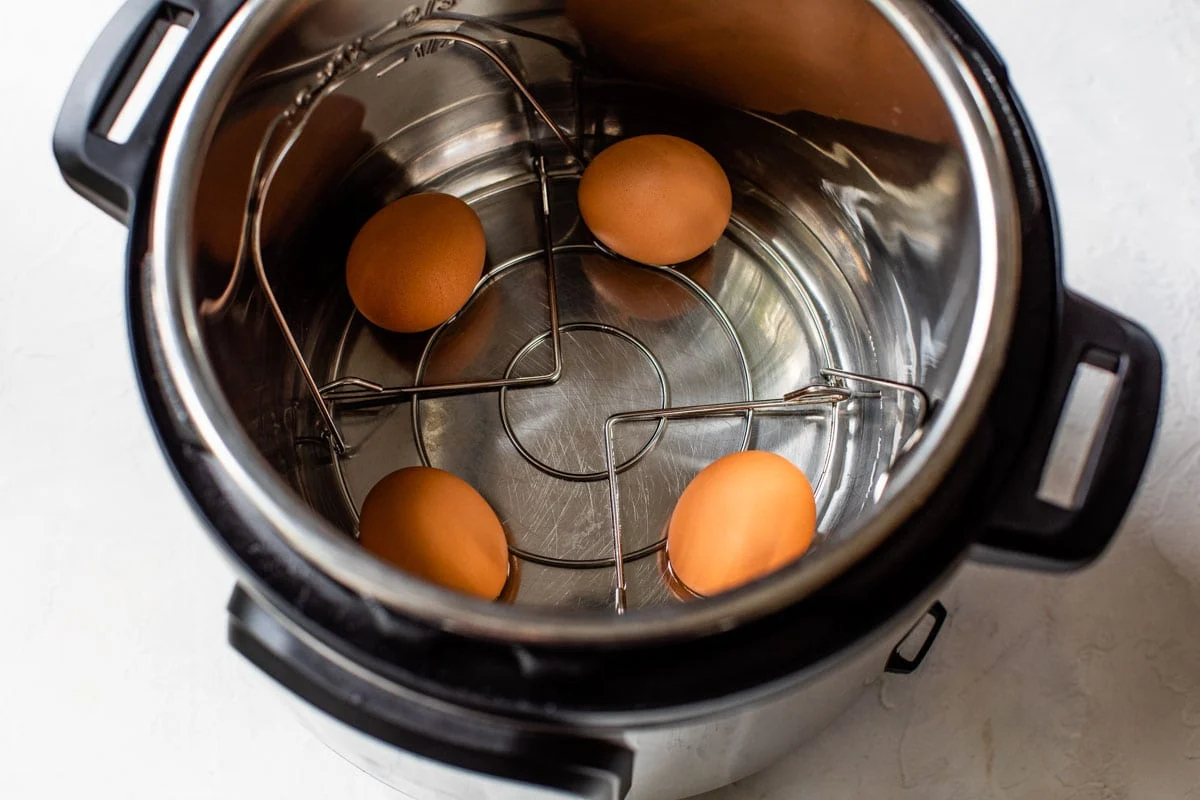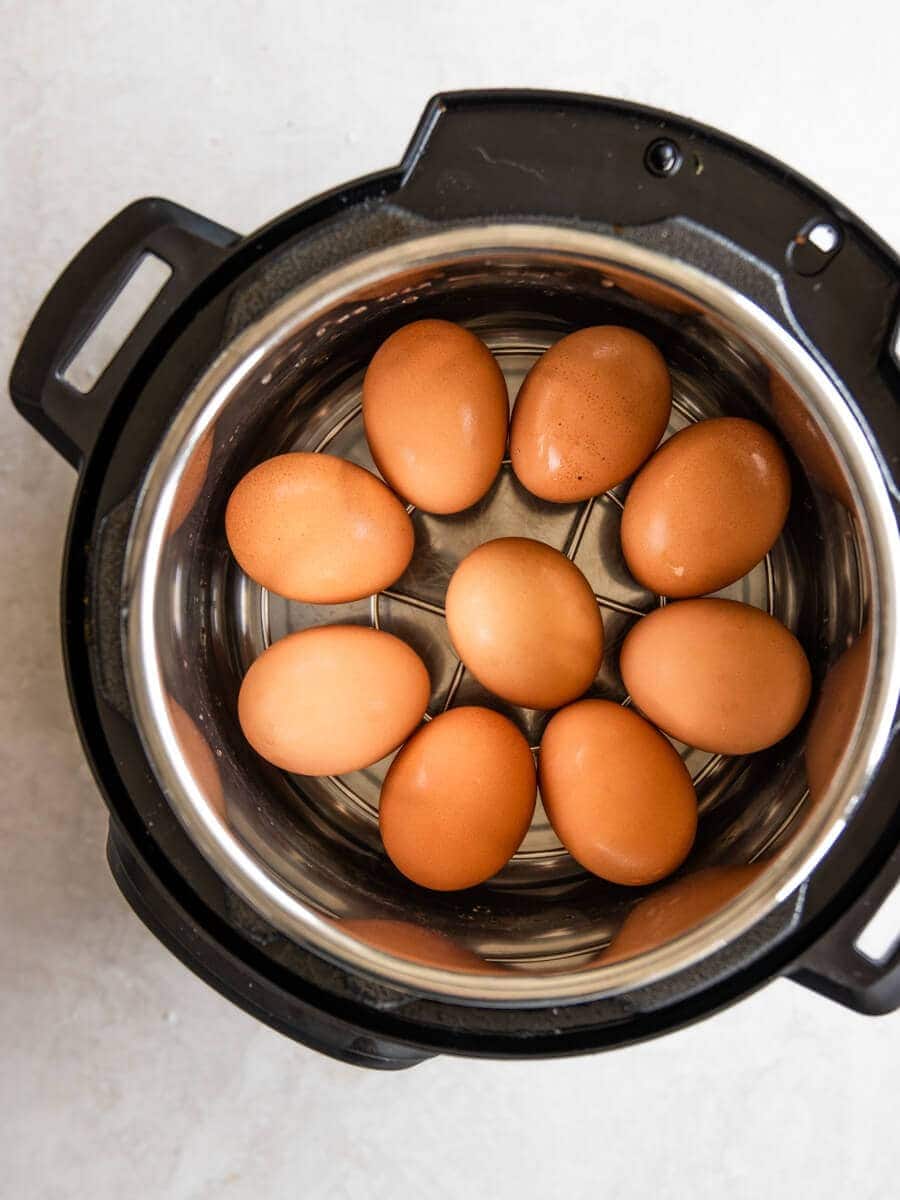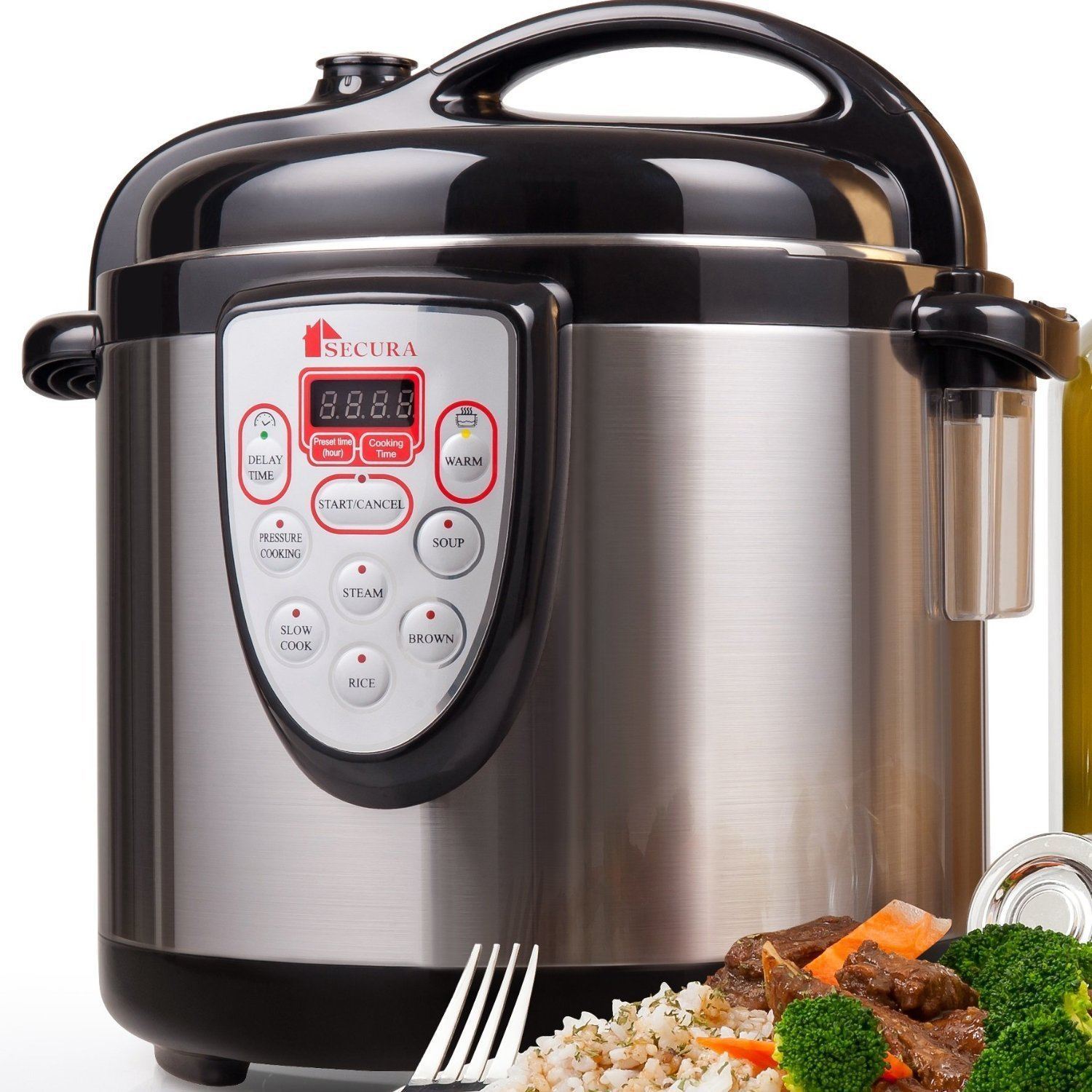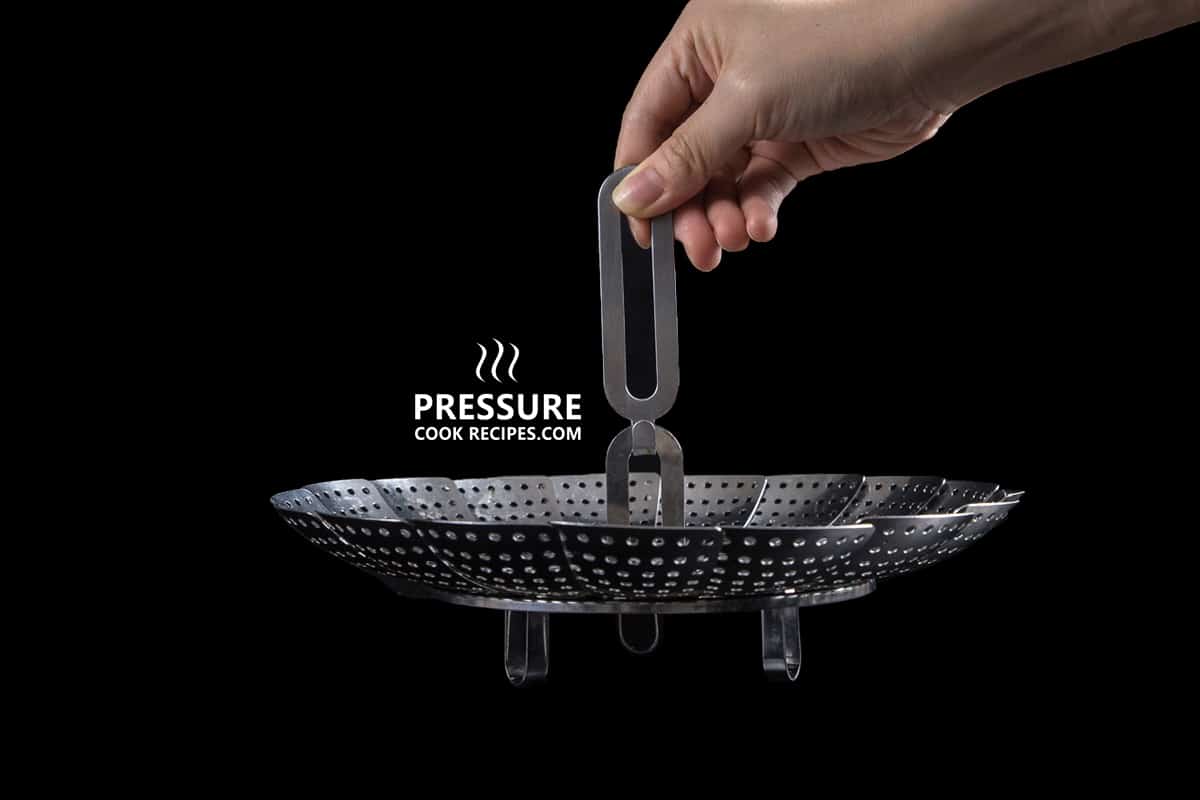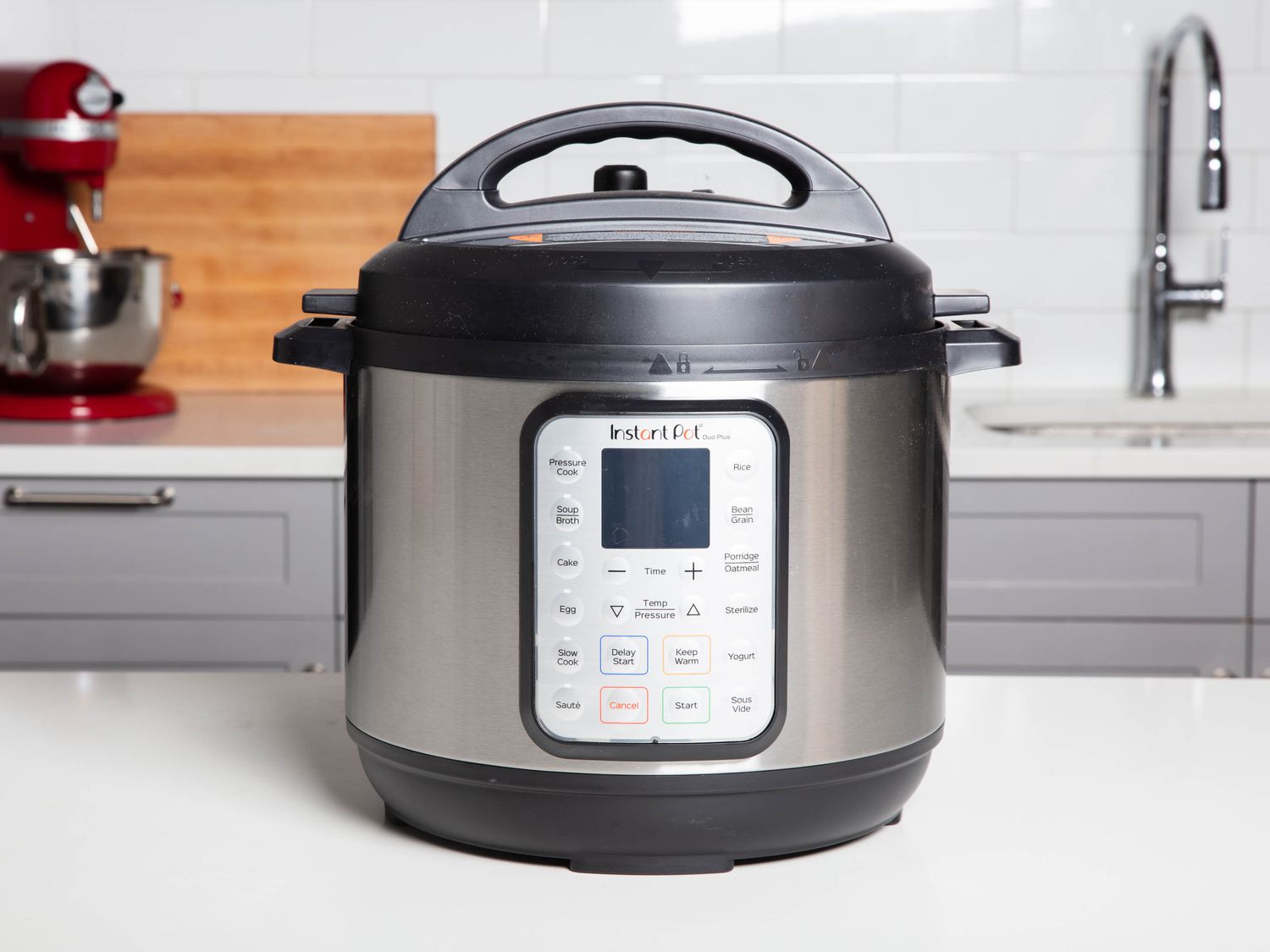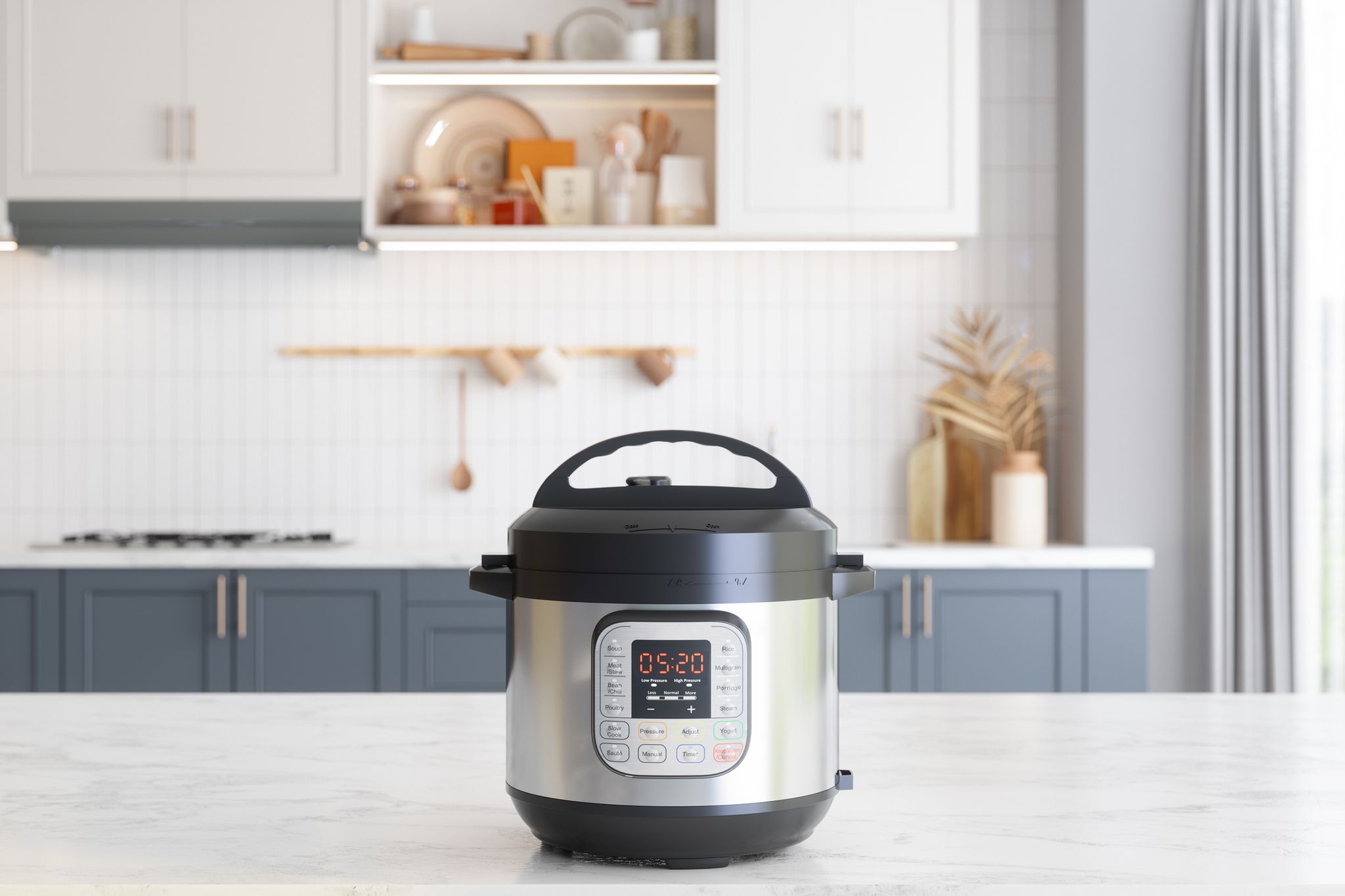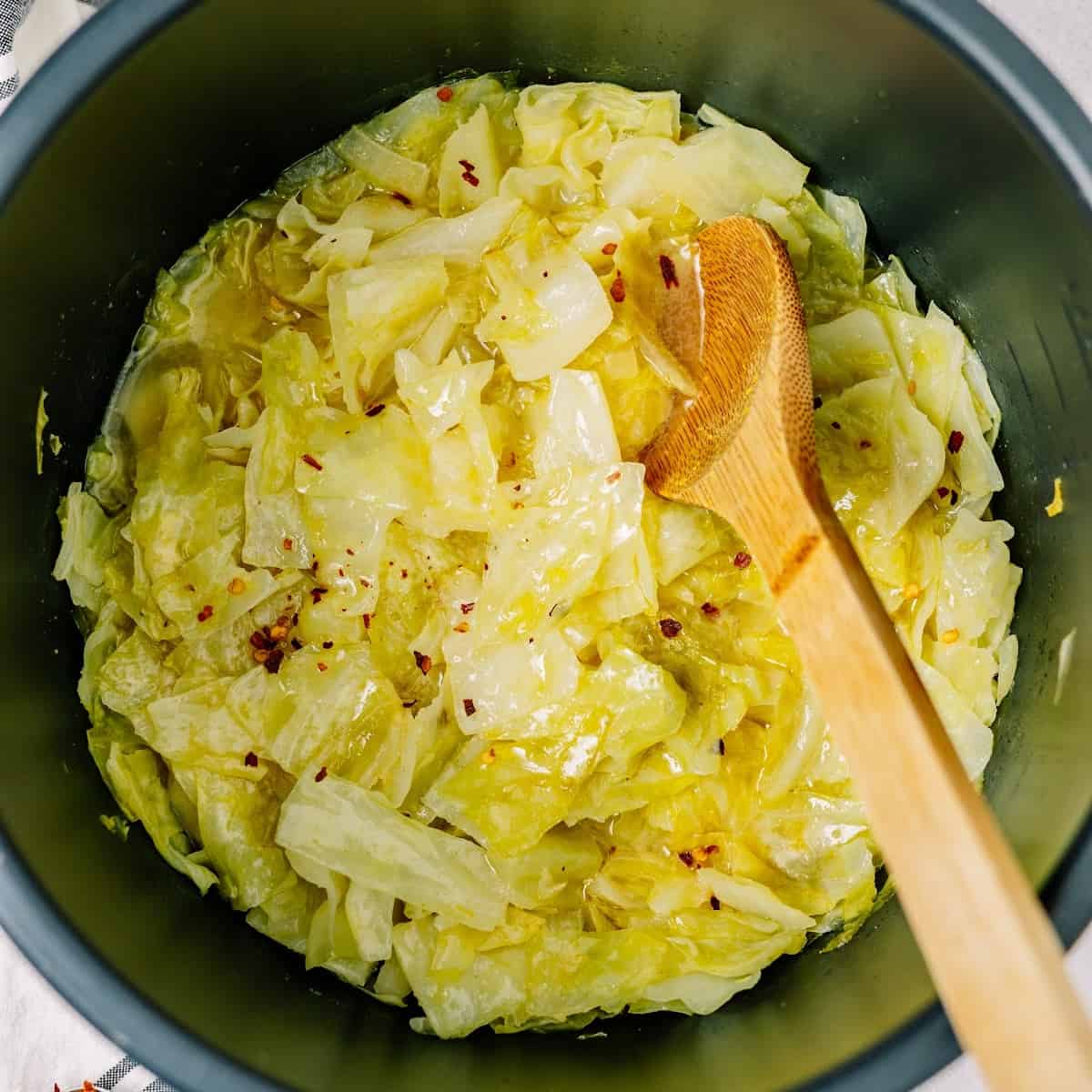Introduction
Welcome to our guide on how to hard boil eggs in an electric pressure cooker. If you’re tired of the hassle and uncertainty of boiling eggs on the stovetop, an electric pressure cooker can be a game-changer. It simplifies the process and ensures consistent results every time.
Hard boiled eggs are a versatile and nutritious food that can be enjoyed as a snack, added to salads, or used in various recipes. While the traditional stovetop boiling method works, it often requires constant monitoring and can result in inconsistent results. That’s where an electric pressure cooker comes in handy.
Electric pressure cookers offer a convenient and efficient way to cook a multitude of dishes, including hard boiled eggs. By utilizing the rapid cooking and pressurized environment, you can achieve perfectly cooked eggs with minimal effort. Whether you’re a seasoned chef or a beginner in the kitchen, this method will revolutionize your egg boiling experience.
In this guide, we will provide you with step-by-step instructions to help you achieve perfectly hard boiled eggs using an electric pressure cooker. We will also share some tips and tricks to make the process even easier and answer some frequently asked questions along the way.
So, grab your electric pressure cooker and let’s dive into the world of effortlessly cooked hard boiled eggs!
Benefits of Using an Electric Pressure Cooker to Hard Boil Eggs
Using an electric pressure cooker to hard boil eggs offers several advantages over traditional stovetop methods. Here are some of the key benefits:
- Time Efficiency: One of the biggest advantages of using an electric pressure cooker for hard boiled eggs is the significant reduction in cooking time. While stovetop boiling can take 10-12 minutes, an electric pressure cooker can achieve the same result in just a few minutes. This time-saving benefit is especially helpful when you’re in a hurry or preparing large batches of eggs.
- Consistent Results: Achieving consistent results with traditional boiling methods can be challenging, as factors like heat intensity and timing can vary. Electric pressure cookers eliminate this inconsistency by providing a controlled and precise cooking environment. The pressurized system ensures that the eggs are cooked evenly, resulting in perfectly boiled eggs every time.
- Ease of Use: Using an electric pressure cooker to hard boil eggs is incredibly simple. Once you load the eggs into the cooker, all you need to do is set the cooking time and wait for the device to do its magic. There’s no need to constantly monitor the pot or worry about water boiling over, making it a hassle-free cooking method.
- Energy Efficiency: Electric pressure cookers operate on a lower heat setting compared to stovetops, which helps save energy. This makes them not only environmentally friendly but also cost-effective in the long run.
- Versatility: Aside from hard boiling eggs, electric pressure cookers offer a wide range of cooking functions. You can use them for steaming vegetables, cooking rice, making soups, and even preparing tender meats. Investing in an electric pressure cooker means you’ll have a versatile kitchen appliance that can serve multiple purposes.
With these benefits in mind, it’s clear why using an electric pressure cooker for hard boiling eggs is a game-changer. It saves time, delivers consistent results, and offers ease of use and versatility. Now that we understand the advantages, let’s move on to the materials needed for the process.
Materials Needed
Before you begin hard boiling eggs in an electric pressure cooker, gather the following materials:
- Electric Pressure Cooker: Ensure that you have a functioning electric pressure cooker that is suitable for cooking eggs. Different models may have slightly different features and settings, so refer to the manufacturer’s instructions for specific details on how to use your particular cooker.
- Eggs: Choose fresh eggs with intact shells. You can use any type of eggs, such as chicken eggs or duck eggs, depending on your preference.
- Water: You’ll need enough water to create steam inside the pressure cooker. The amount will vary depending on your cooker’s instructions, but a general guideline is to add about 1 cup of water.
- Trivet: Some electric pressure cookers come with a trivet or a steamer basket. This accessory helps elevate the eggs slightly above the water level, preventing direct contact with the liquid. If your cooker doesn’t include a trivet, you can purchase one separately to ensure the best results.
- Tongs or Spoon: It’s essential to have a tool for safely removing the eggs from the pressure cooker once they are cooked. You can use tongs or a spoon with slots to carefully lift the eggs out of the hot environment.
- Bowl of Ice Water: Prepare a bowl filled with ice water. This will be used to cool down the eggs quickly after they are cooked, preventing them from overcooking and making them easier to peel.
Once you have gathered these materials, you are ready to move on to the step-by-step instructions for hard boiling eggs in an electric pressure cooker. Let’s get started!
Step-by-Step Instructions for Hard Boiling Eggs in an Electric Pressure Cooker
Follow these simple steps to hard boil eggs in an electric pressure cooker:
- Add Water: Pour the specified amount of water into the inner pot of your electric pressure cooker. Refer to your cooker’s instruction manual for the recommended amount.
- Place Trivet: If your pressure cooker came with a trivet or steamer basket, place it inside the pot. This will prevent the eggs from directly touching the water and ensure they are cooked evenly.
- Add Eggs: Gently place the eggs onto the trivet or directly into the water. Make sure not to overcrowd the pot, allowing enough space for the eggs to cook evenly.
- Close Lid: Securely close the lid of the electric pressure cooker, ensuring it is properly sealed. Follow the manufacturer’s instructions for correctly locking the lid into place.
- Select Cooking Setting: Set the cooking time and pressure level according to your pressure cooker’s instructions. For hard boiled eggs, a typical cooking time is around 5-7 minutes at high pressure. Refer to your device’s manual for specific guidance.
- Start Cooking: Start the cooking process by selecting the appropriate setting on your electric pressure cooker. The device will begin to heat up and build pressure, cooking the eggs to perfection.
- Natural Release or Quick Release: Once the cooking time completes, you have two options for releasing the pressure. You can either allow for a natural release, where the pressure is released gradually over time, or use the quick release method as per your cooker’s instructions. Both methods are effective, but keep in mind that a quick release may cause the eggs to be slightly more difficult to peel.
- Cool in Ice Water: Using tongs or a spoon, transfer the cooked eggs immediately to a bowl filled with ice water. This will stop the cooking process and help the eggs cool down quickly. Let them sit in the ice water for about 5 minutes.
- Peel and Enjoy: Once the eggs have cooled, gently tap them on a hard surface to crack the shell, then peel off the shell carefully. Rinse the eggs under cold water to remove any remaining shell fragments. Your perfectly hard boiled eggs are now ready to be enjoyed!
By following these step-by-step instructions, you can achieve consistently delicious and perfectly boiled eggs using your electric pressure cooker. Now that you know the process, let’s move on to some tips and tricks to ensure your eggs turn out even better.
Tips and Tricks for Perfectly Hard Boiled Eggs
While the basic process of hard boiling eggs in an electric pressure cooker is straightforward, incorporating these tips and tricks will help you achieve even better results:
- Fresh Eggs: Fresh eggs are easier to peel than older ones. If possible, use eggs that are less than a week old for the best peeling experience.
- Water Amount: Adjust the amount of water based on your preference for softer or harder yolks. For softer yolks, use less water, and for firmer yolks, use slightly more water.
- Release Method: Experiment with different release methods to find what works best for you. Quick release may yield slightly harder-to-peel eggs, while natural release can result in easier peeling.
- Ice Bath: Plunge the cooked eggs into an ice water bath immediately after cooking to stop the cooking process and cool them down quickly. This helps prevent overcooking and facilitates easier peeling.
- Peeling Technique: To make peeling easier, gently roll the cooked eggs on a hard surface to crack the shell before peeling. Starting peeling from the wider end tends to yield better results.
- Vary Cook Time: Adjust the cooking time based on your preference for softer or firmer yolks. Experiment with different cooking times to find the perfect consistency for your taste.
- Batch Size: Avoid overcrowding the pot with too many eggs, as this can affect the cooking time and evenness. Cook eggs in multiple batches if needed, or use a larger pressure cooker to accommodate more eggs at once.
- Test for Doneness: If you’re unsure about the doneness of the eggs, you can use the “sacrificial egg” method. Cook one egg for the desired time, quickly cool it, and then check its yolk to determine if it’s cooked to your preference.
- Storage: Once your hard boiled eggs are peeled, store them in a covered container in the refrigerator. They can stay fresh for up to one week, making them a convenient and healthy grab-and-go snack.
By implementing these tips and tricks, you’ll be able to fine-tune your hard boiling technique and achieve consistently excellent results every time. Now that you have mastered the art of hard boiling eggs in an electric pressure cooker, let’s address some commonly asked questions.
Frequently Asked Questions
Here are some common questions and answers regarding hard boiling eggs in an electric pressure cooker:
- Can I use cold eggs directly from the fridge?
Yes, you can use eggs straight from the refrigerator. However, keep in mind that it may take slightly longer for the pressure cooker to reach the desired cooking temperature. - What is the shelf life of hard boiled eggs?
Hard boiled eggs can be stored in the refrigerator for up to one week. Be sure to store them in a covered container to maintain their freshness. - How do I prevent the eggs from cracking during cooking?
To minimize the risk of eggs cracking, it’s important to handle them gently when placing them in the pressure cooker. You can also try using fresh eggs and allowing them to come to room temperature before cooking. - How do I know if the eggs are cooked to the desired level?
The cooking time stated in the instructions will result in a fully cooked hard boiled egg. If you prefer softer or firmer yolks, adjust the cooking time accordingly. You can do a test run with a single egg to determine the perfect cooking time for your preference. - Why are my eggs difficult to peel?
Older eggs or eggs that are cooked too long may be more challenging to peel. Using fresher eggs and promptly transferring them to an ice bath after cooking can help make peeling easier. - Can I use an electric pressure cooker for other egg cooking methods?
Absolutely! Electric pressure cookers are versatile appliances that can handle a variety of egg cooking methods. Experiment with soft boiled, medium boiled, or even steamed eggs to discover new and delicious ways to enjoy eggs. - Can I reuse the water after cooking the eggs?
It is not recommended to reuse the water as it may have picked up flavors from the eggs. It’s best to discard the water and start with fresh water for each batch of eggs.
These frequently asked questions should address some of the uncertainties you may have had about hard boiling eggs in an electric pressure cooker. Now that you have all the information you need, you’re ready to embark on your egg boiling journey with confidence!
Conclusion
Congratulations! You have now mastered the art of hard boiling eggs in an electric pressure cooker. By following the step-by-step instructions, you can effortlessly achieve consistent and perfectly boiled eggs every time. The benefits of using an electric pressure cooker for this task are numerous – it saves time, delivers consistent results, and offers ease of use and versatility.
Remember to gather all the necessary materials before you begin. Fresh eggs, water, a trivet, tongs or a spoon, and a bowl of ice water are essential for the process. By following the recommended cooking times, release methods, and peeling techniques, you’ll enhance your egg boiling experience and achieve the desired consistency for your yolks.
Additionally, the tips and tricks shared in this guide will help you fine-tune your egg boiling technique. Factors such as egg freshness, water amount, release methods, and peeling techniques can significantly impact your results. With practice and experimentation, you’ll be able to customize the process to suit your preferences.
Now that you are equipped with the knowledge and understanding of how to hard boil eggs in an electric pressure cooker, you can enjoy the convenience, efficiency, and consistently delicious results that this cooking method provides. So, grab your electric pressure cooker, gather your materials, and start boiling perfect eggs today!







